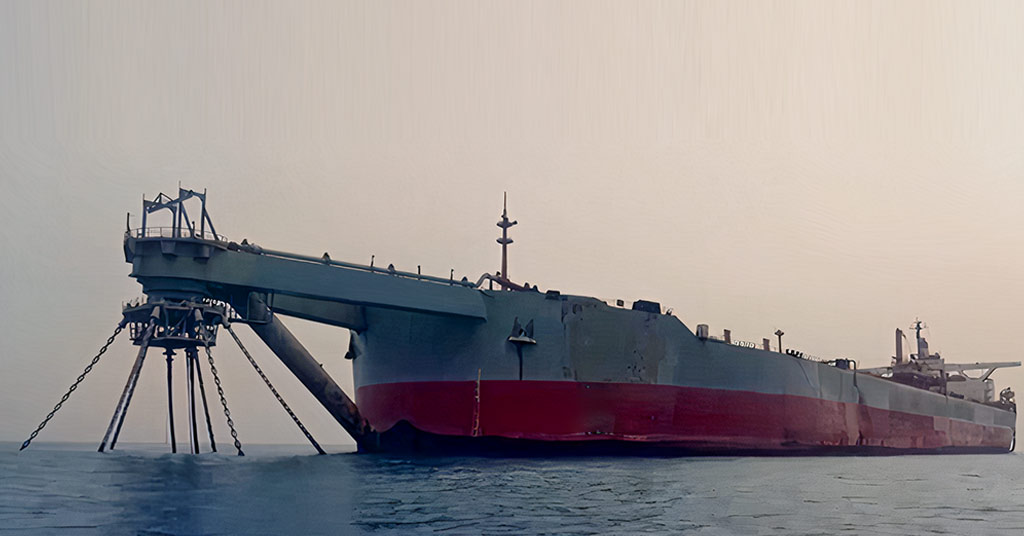Welcome To ChemAnalyst

United States: This Week, the United Nations Begins Campaign to Prevent Environmental Catastrophe in the Red Sea. The international agency has reported an aging supertanker, FSO Safer, carrying 1.14 million barrels of crude oil is in a state of rapid deterioration off the coast of Yemen. The vessel, which is nearly 50 years old, has been anchored around 5.5 miles offshore for seven years without any maintenance.
The U.N. has revealed that the FSO Safer, anchored off the coast of Yemen, is rapidly deteriorating and has lost some of its structural integrity, leading to concerns about possible catastrophic events. The supertanker is at high risk of being hit by floating mines, exploding suddenly, or disintegrating at any given moment. Officials have been seeking a resolution to this issue for years, and in 2020, Inger Andersen, the executive director of the U.N. Environment Programme, warned that a potential oil leak from the ship could result in releasing four times more oil than the 1989 Exxon Valdez oil spill in Alaska. The devastating aftermath of the oil spill caused the death of thousands of sea otters, hundreds of seals, and almost two dozen killer whales, while also causing extensive damage to more than 1,300 miles of coastline.
The oil spill is one of the most significant environmental calamities in recent years in the country, and several species are yet to recover fully from its impact. This could exacerbate the strain on the ecosystem in the region. Over many years, millions of barrels of oil have been spilled in the Niger Delta on Africa's west coast, causing environmental damage, legal repercussions, and public protests. The U.N. has identified this tanker as one of the largest oil spills in human history, capable of costing $20 billion to clean up, impacting 17 million people, and devastating coral reefs, mangroves, and other forms of marine biodiversity if it ruptures.
As per the U.N., the communities residing along the coast would be the most adversely affected. The report suggests that the fishing sector would lose hundreds of thousands of jobs almost instantly. Furthermore, it would take around 25 years to revive the fish population.
Since 2014, the Yemen civil war has been ongoing, leading to the current situation. The ship became a bargaining tool for both sides when the war began between the country's government and the Houthi rebels, causing a back-and-forth that ultimately led to the suspension of all operations on the ship in 2015.
The U.N. launched an official mission one year after starting an online crowdfunding campaign to raise funds to prevent any disaster from occurring. The mission is estimated to cost approximately $144 million, and while the U.N. has most of the required funds, they still need an additional $24 million to fully finance the effort.
Despite the funding shortfall, the "high-risk" two-part operation was initiated this week. The first phase, known as the "emergency phase," involves the transfer of oil from the tanker to a new vessel named Nautica. The crew responsible for inspecting the aging vessel arrived at the site on May 30th. Officials have announced that Nautica will remain anchored off the coast of Djibouti in East Africa until Safer's oil transfer is deemed safe, as of Friday morning Eastern Time.
During the second phase of the operation, Nautica, carrying the oil, will be attached to a catenary anchor leg mooring buoy that is specifically designed to accommodate large vessels like this one, taking Safer's spot in the Red Sea. Despite being emptied, FSO Safer still contains a significant amount of residual oil and poses a significant environmental risk. Therefore, it will be towed to a scrapyard.
Although the U.N. has been raising funds for this mission, officials say that an additional $29 million is required. "This is an excellent achievement, stated U.N. humanitarian coordinator David Gressly, but we will not be entirely satisfied until the operation has been completed.
We use cookies to deliver the best possible experience on our website. To learn more, visit our Privacy Policy. By continuing to use this site or by closing this box, you consent to our use of cookies. More info.
